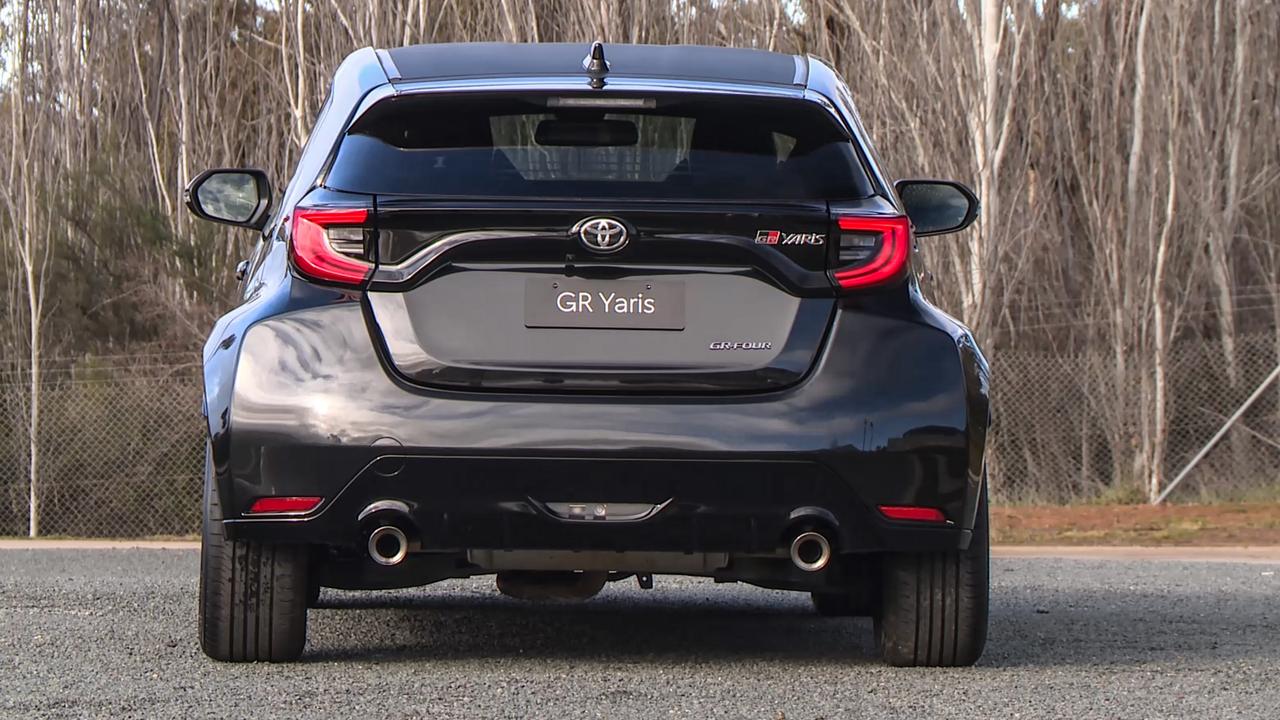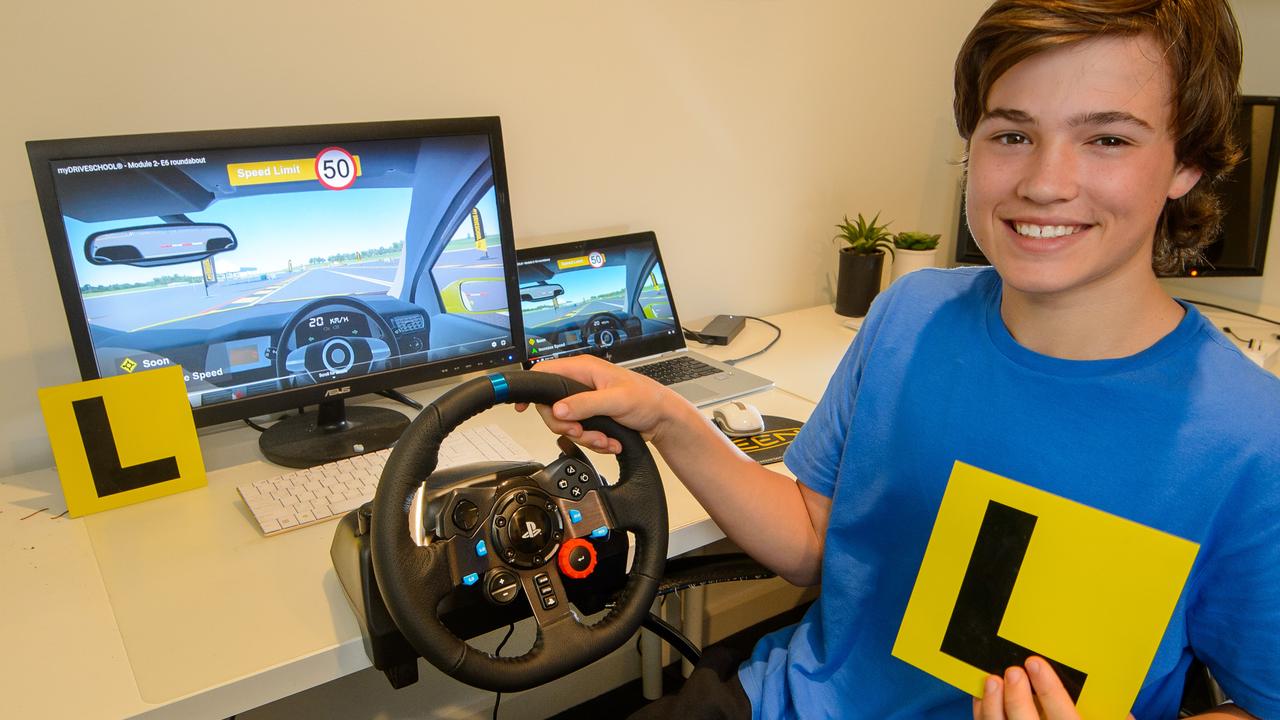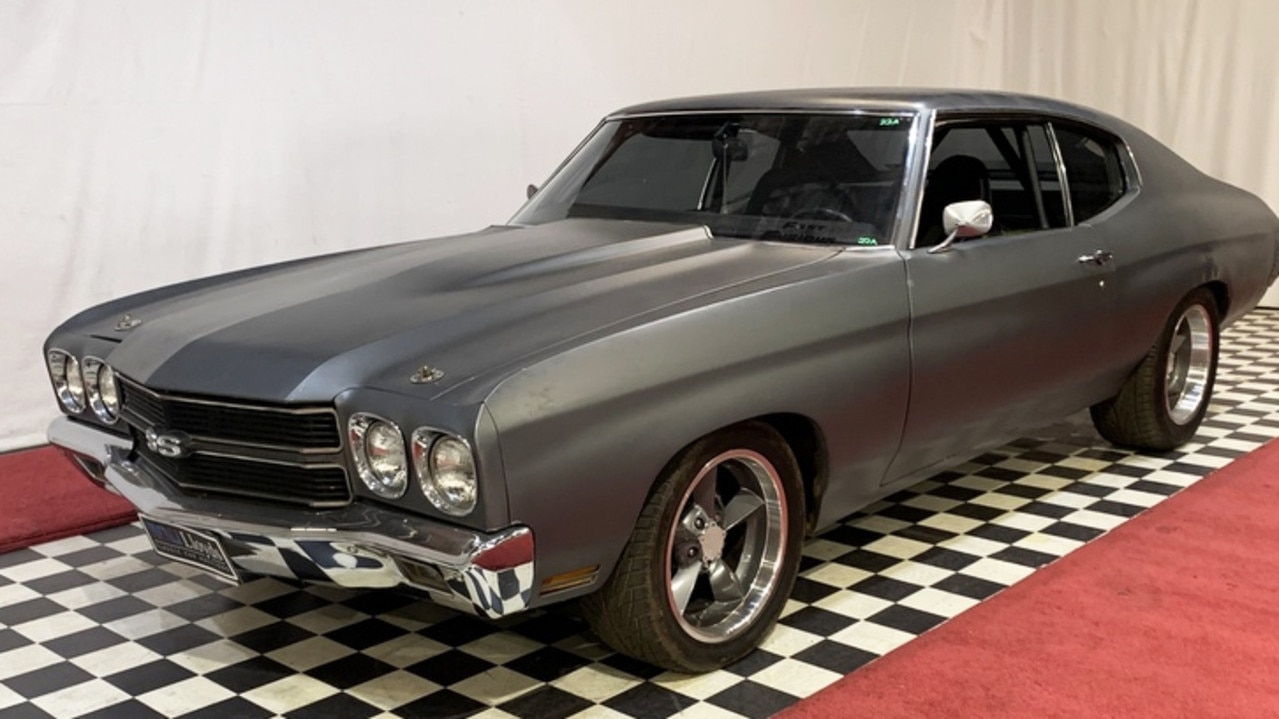HSV GTS-R W1 production ends: last Australian-made car rolls off Holden Special Vehicles assembly line
HOLDEN production ended in October but performance-car partner HSV powered on until the final whistle in 2017.
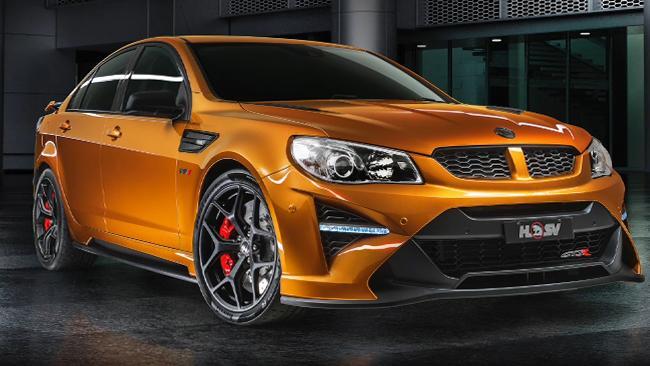
THIS golden Holden really is the last Australian-made car to roll off a local assembly line.
Holden Special Vehicles has put the finishing touches on the last GTS-R W1 — the fastest, most powerful and the most expensive car ever built in Australia — ending 30 years of locally-modified Commodores.
This is number 275 of 275 for Australia, plus there were 20 W1s made for New Zealand and three “customer ready” final engineering cars, to bring the total production tally to 298.

All W1s were sold before the car was even unveiled but a handful have popped up at auction after some buyers tried to turn a quick profit on the $170,000 sedan.
While Ford shut its car factory in October 2016 and Toyota and Holden closed their manufacturing operations in October 2017, HSV’s final assembly facility in Clayton southeast of Melbourne kept going until the end of 2017, using a stockpile of Commodores..
For the past three decades HSV’s assembly line put the finishing touches on its performance models — such as suspension, brakes, wheels, exhausts, bodywork and engine upgrades — after the ‘donor’ car has been built on Holden’s main production line in Elizabeth, South Australia.

After approximately 15,000 truckloads of more than 90,000 cars freighted from South Australia to Melbourne over 30 years, HSV’s homegrown era has come to an end.
Once this final batch of 150 vehicles at Clayton is distributed to Holden dealers, the company will move into new premises in the same postcode where it will begin building beefed up Holden Colorado utes and convert Chevrolet Camaro muscle cars and Silverado pick-ups to right-hand-drive to General Motors’ factory standards.
HSV was building its entire range except the Grange limousine all the way through the final weeks of production: GTS-R and 30th anniversary Clubsport sedans, Maloo utes and Clubsport wagons, as well as the W1.
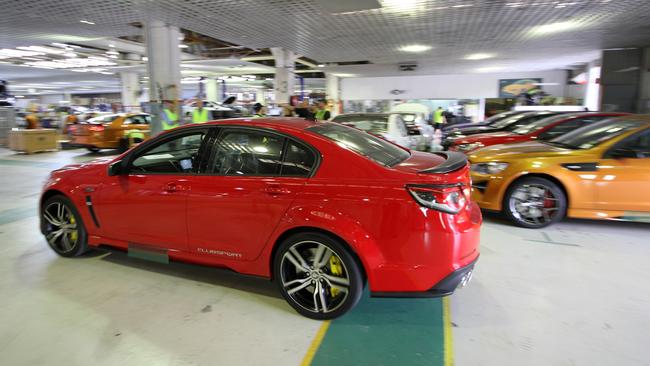
HSV has kept the first and last W1 — number one and 275 — as museum pieces. There were eight engineering prototypes built during development but they are due to be crushed, dismantled or returned to regular GTS-R sedans and refitted with their original LSA engines.
Most of the final edition cars were specially ordered by enthusiast buyers but the company says there still are about 300 examples of the GTS-R, Clubsport and Maloo in showrooms — about four cars in total per HSV dealer — going into the first half of 2018.
“For all at HSV, this is a time for great reflection on what the company has been able to achieve to date, said Tim Jackson, HSV managing director.
“Any success we’ve enjoyed has been directly attributable to our passionate staff, our dedicated dealer body and of course our loyal fans who have helped build this brand through its 30-year journey.”
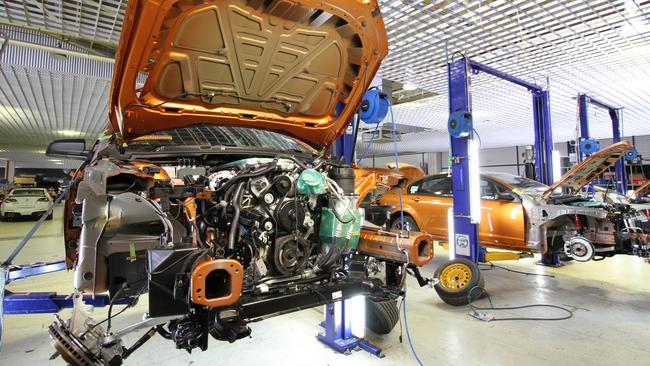
Official company records show HSV has built 90,114 vehicles to the end of 2017, the vast majority of which were Commodore-based cars.
HSV was born in 1987 after Holden’s relationship with motor racing legend Peter Brock soured.
Brock had built up a lucrative special vehicles business since the early 1980s but Holden cancelled the contract after several controversies, including Brock’s refusal to validate a device the size of two matchboxes called an “energy polariser”.
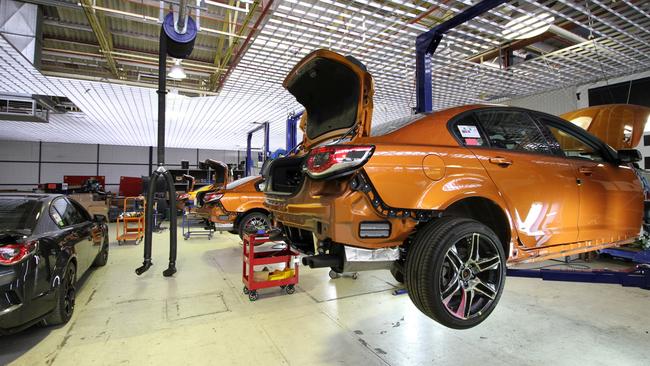
Brock claimed it improved the performance of the car but Holden and General Motors engineers in the US could not prove the claim.
Brock then went ahead and unveiled a sports-luxury model called the Director — without Holden’s permission or any proper approvals — and the love affair was over.
Although Brock would eventually return to Holden as a race driver, the contract for the performance-car business was won by savvy Scotsman and successful motor racer Tom Walkinshaw.
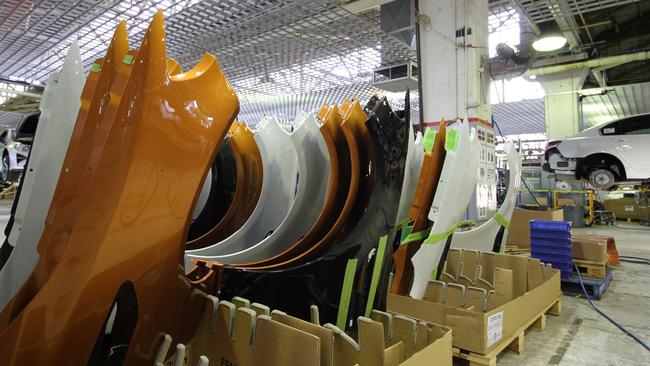
The Walkinshaw and HSV journey started with the daringly designed 1988 VL Group A SS sedan — built to qualify the Commodore for the latest racing regulations — and eventually moved into the mainstream performance-car business.
Since Walkinshaw’s death in 2010 HSV has been overseen by Tom’s eldest son Ryan and Tom’s wife Martine.
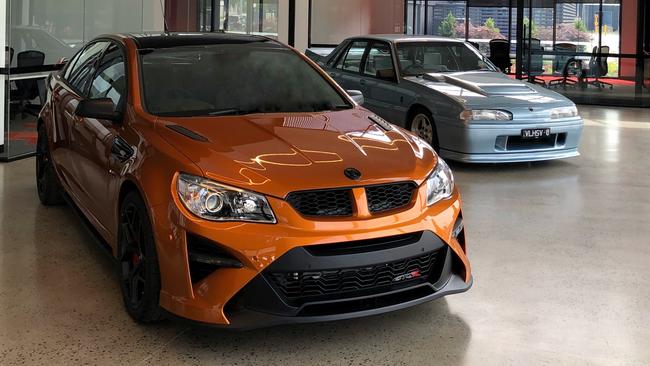
How a HSV came to life
HSV would make its own engineering changes to tyres, brakes, steering, suspension and engine power alongside the development of each new Commodore model.
After thousands of kilometres of testing — and final approval by Holden — HSV would then source, fit and warrant its unique parts.
The ‘donor’ car was built on Holden’s production line in Elizabeth, SA, in a partially completed form with some temporary parts such as bumpers, wheels, and brakes.
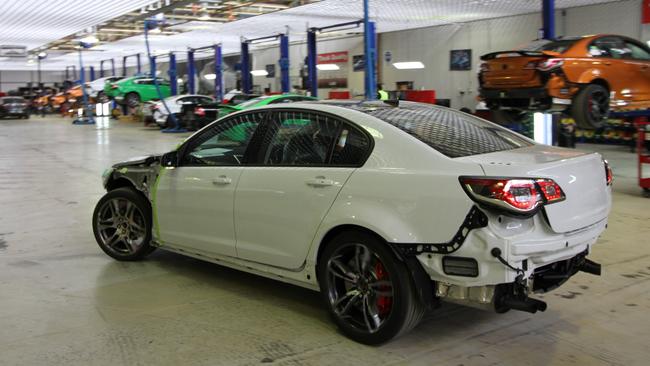
After being trucked from Elizabeth, SA, to Clayton southeast of Melbourne, HSV added the finishing touches such as bumpers, performance brakes, bigger exhaust systems, unique bodywork, new suspension and, in the case of the HSV W1 and W427, new engines.
It took about two days for a Commodore to be transformed into a HSV once inside the Clayton facility, and about four days for a W1 to be completed given the extra time for the engine and gearbox installation.
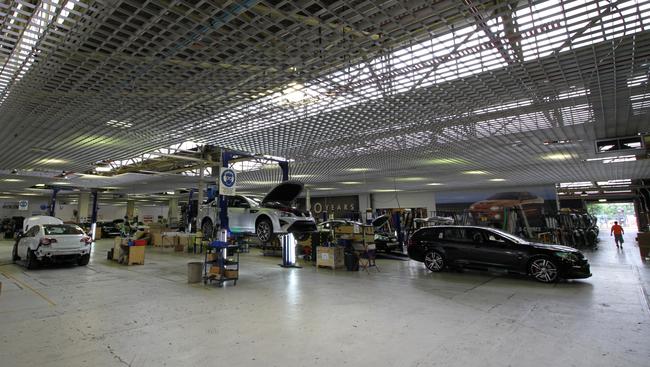
HSV cars were sold through about 65 selected showrooms in Holden’s network of 200-plus dealers.
The original HSV site at Clayton produced on average about 3000 cars per year and peaked in 2008 with more than 5000. In its final year of Commodore production HSV built more than 3500 vehicles.
There were about 150 Commodores on site from start to finish at any one time during production.
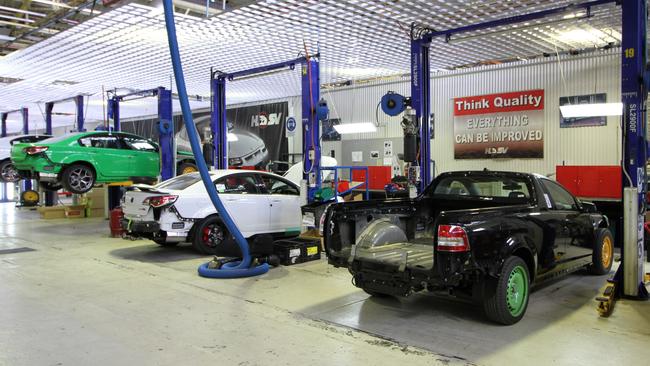
The grey bumpers and green or yellow “slave” wheels on the donor cars were sent back to Elizabeth and reused on the next batch of cars due to be shipped to HSV.
The HSV business will change in 2018 to modify Colorado utes: the donor vehicles will arrive from Thailand in a partially complete form before HSV adds bodywork, suspension, brakes, wheels and tyres, as well as fitting new interior trim.
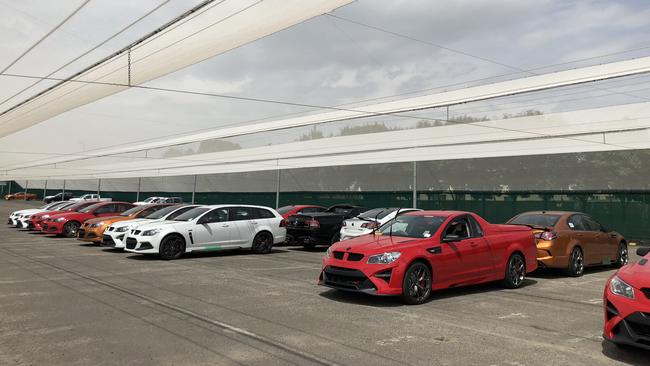
HSV will also begin converting Chevrolet Camaro muscle cars and Silverado pick-ups from left-hand-drive to right-hand-drive to GM’s factory standards from the middle of 2018. The cars will be sold with a factory warranty via selected Holden dealerships.
To cope with the expansion, HSV will move into new premises, also in Clayton, in early 2018. It expects to eventually boost job numbers from 130 to 150 staff once production ramps up.
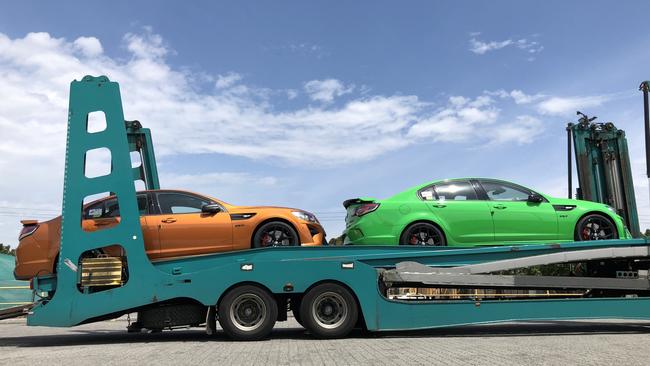
HSV Production Highlights
VL Group A SS: 750
VL SV88: 150
VN SV3800: 491
VN SV89: 200
VN SV5000: 359
VN ClubSport: 410
VG Maloo: 132
VP GTS: 130
VS GTS-R: 85
GTS Coupe: 423
Coupe 4: 132
W427: 137
25th Anniversary GTS: 140
GTS Maloo: 255
GTS-R (MY17 sedan): 1270
GTS-R Maloo: 606
GTS-R W1: 298 (275 for Australia 20 for NZ, and three customer-ready engineering cars)
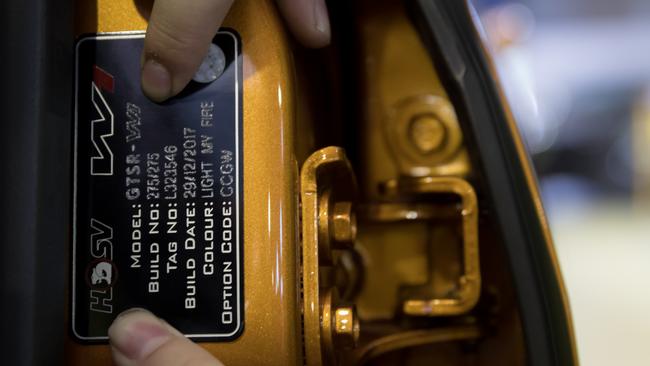
HSV Production Milestones
5,000th vehicle built (June 1991)
20,000th vehicle built (April 1997)
50,000th vehicle built (July 2006)
75,000th vehicle built (February 2013)
90,000th vehicle built (December 2017)
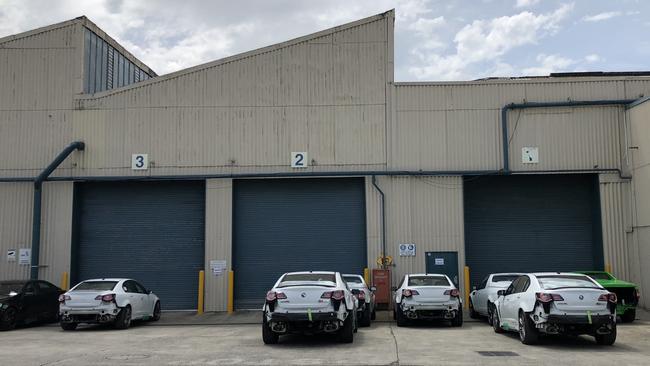
Fast facts: HSV GTS-R W1
RRP: $170,000 plus on-road costs
Engine: Supercharged 6.2-litre ‘LS9’ V8 from Corvette ZR1
Power: 474kW and 815Nm
Transmission: Six-speed manual
0 to 100kmh: 4.2 seconds (as tested)
This reporter is on Twitter: @JoshuaDowling

